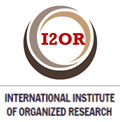Variables positivas de la personalidad y Síndrome de Desgaste Psíquico en el trabajo. Estudio exploratorio de asociaciones e independencia
Palabras clave:
bienestar psicológico, optimismo, autoestima, resistencia, estresores laborales, salud mental, burnout, estrés laboralResumen
Personalidad resistente, dura o hardiness, optimismo, autoestima y bienestar psicológico son factores intrapersonales positivos que influyen en la salud, y esta perspectiva se conoce como una orientación salutogénica. El presente estudio, descriptivo y transversal, explora las asociaciones entre estas variables y el Síndrome de Burnout o del quemado en trabajadores cubanos no asistenciales. Los instrumentos utilizados fueron aplicados a 74 sujetos. Los análisis factoriales y de consistencia mostraron que los instrumentos son confiables. Los resultados muestran la correlación e influencia mutua existente entre las variables salutogénicas y entre éstas y el Síndrome de Burnout
Descargas
Citas
Seligman ME, Csikszentmihalyi M. Positive psychology: An introduction. American Psychologist 2000;55:5-14.
Antonovsky A. Unraveling the mystery of health: How people manage stress and stay well. San Francisco: Jossey-Bass; 1987.
Seligman ME. Aprenda optimismo. Barcelona: Grijalbo Mondadori; 1998.
Scheier MF, Carver CS. Dispositional optimism and physical well-being: The influence of generalized outcome expectancies on health. Journal of Personality 1987;55:169-210.
Chico E. Optimismo disposicional como predictor de estrategias de afrontamiento. Psicothema 2002; 14:544-50.
Gillhamn J, Shatte A, Reivich K, Seligman ME. Optimism and explanatory style. In: Chang E, ed. Optimism and pesimism. Implications for theory, research and practice. Washington DC: American Psichological Association; 2001.
Cohen S, Herbert T. Health psychology: Psychological factors and physical disease from the perspective of human psychoneuroinmunology. Annual Review Psychology 1996;47:113-42.
Carver C, Scheier M.Optimism, pesimism and self-regulation. In: Chang E, ed. Optimism and pesimism. Implications for theory, research and practice. Washington DC: American Psichological Association; 2001.
Ai AL, Peterson C, Tice TN, Huang B, Rodgers W, Bolling SF. The influence of prayer coping on mental health among cardiac surgery patients: the role of optimism and acute distress. J Health Psychol 2007;12(4):580-96.
Kobasa SC. Stressfull life events, personality, and health: An inquiry into hardiness. Journal of Personality and Social Psychology 1979;37,1-11.
Oramas A, Santana S. El bienestar psicológico, un indicador positivo de la salud mental. Revista Cubana de Salud y Trabajo 2006; 7(1-2):34-9.
Lambert VA, Lambert CE, Petrini M, Li XM, Zhang YJ. Predictors of physical and mental health in hospital nurses within the People's Republic of China. Int Nurs Rev 2007;54(1):85-91.
Judkins S, Reid B, Furlow L. Hardiness training among nurse managers: building a healthy workplace. J Contin Educ Nurs 2006;37(5):202-7; quiz 208-9, 238.
Judkins S, Massey C, Huff B. Hardiness, stress, and use of ill-time among nurse managers: is there a connection? Nurs Econ 2006;24(4):187-92, 175.
Karanikola MN, Papathanassoglou ED, Giannakopoulou M, Koutroubas A. Pilot exploration of the association between self-esteem and professional satisfaction in Hellenic hospital nurses. J Nurs Manag 2007;15(1):78-90.
Freudenberger HJ. Staff Burnout. Journal of Social Issues 1974;30:159-165.
Maslach, C, Jackson SE. Maslach Burnout Inventory. Research ed. Palo Alto: Consulting Psychologist Press; 1981.
Maslach, C Jackson SE, Leiter MP. Maslach Burnout Inventory. 3rd ed. Palo Alto: Consulting Psychologist Press; 1996.
Pines AM. Burnout - An existential perspective. In: Schaufeli W, Maslach C, Marek T, eds. Professional burnout : Developments in theory and research. Washington DC: Taylor & Francis; 1993. p. 33-52.
Schutte N, Toppinen, S, Kalimo R, Sachaufeli W. The factorial validity of the Maslach Burnout Inventory-General Survey (MBI-GS) across occupational groups and nations. Journal of Occupational and Organizational Psychology 2000;73: 53-65.
Moreno-Jiménez B, Carvajal RR, Escobar RE. La evaluación del burnout profesional. Factorializacion del MBI-GS. Un análisis preliminar. Ansiedad y Estrés 2001,7(1):69-78.
Gil-Monte PR. Validez factorial de la adaptación española del Maslach Burnout Inventory-General Survey. Salud Pública de México 200; 44(1):33-40.
Oramas A, González A. El desgaste profesional. Evaluación y factorialización del MBI-GS. Revista Cubana de Salud y Trabajo 2007;8(1):37-45.
Browning L, Ryan CS, Greenberg MS, Rolniak S. Effects of cognitive adaptation on the expectation-burnout relationship among nurses. J Behav Med 2006;29(2):139-50.
Chang EC, Sanna LJ, Yang KM. Optimism, pessimism, affectivity, and psychological adjustment in US and Korea: A test of a mediation model. Personality and Individual Differences 2003; 34 7 :1195-208.
Olason DT, Roger D. Optimism, pessimism and fighting spirit : A new approach to assesing expectancy and adaptation. Personality and individual differences 2001;31:755-68.
Vera-Villarroel P, Castillo R, Guerrero A. Propiedades psicometricas del Test de Orientación Vital en una población chilena. En prensa 2002.
Descargas
Publicado
Cómo citar
Número
Sección
Licencia
Aquellos autores/as que tengan publicaciones con esta revista, aceptan los términos siguientes:- Los autores/as conservarán sus derechos de autor y garantizarán a la revista el derecho de primera publicación de su obra, el cuál estará simultáneamente sujeto a la licencia Creative Commons Reconocimiento-NoComercial-CompartirIgual 4.0 Internacional (CC BY-NC-SA 4.0) Esta licencia permite a otros compartir el trabajo con un reconocimiento de la autoría del trabajo y la publicación inicial en esta revista (componente BY o atribución). Coincidente con la política de Acceso Abierto, no se podrán hacer usos comerciales de los contenidos publicados por esta revista (componente NC). Se permitirán las obras derivadas (remezcla, transformación o creación a partir de la obra original), siempre y cuando sean distribuidas bajo la misma licencia de la obra original (componente SA).
- Los autores/as podrán adoptar otros acuerdos de licencia no exclusiva de distribución de la versión de la obra publicada (p. ej.: depositarla en un archivo telemático institucional o publicarla en un volumen monográfico) siempre que se indique la publicación inicial en esta revista.
- Se permite y recomienda a los autores/as difundir su obra a través de Internet (p. ej.: en archivos telemáticos institucionales o en su página web) antes y durante el proceso de envío, lo cual puede producir intercambios interesantes y aumentar las citas de la obra publicada. (Véase El efecto del acceso abierto).






